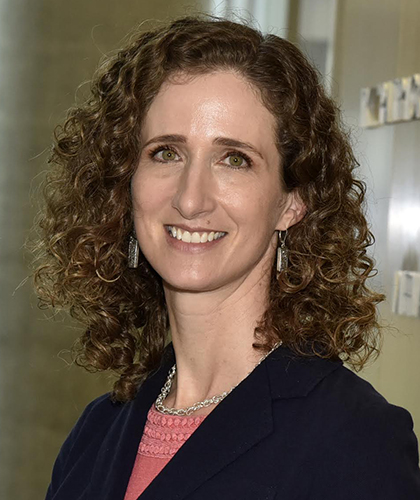
Clyne, Alisa Morss
Fischell Fellow
ADVANCE Professor
Brain and Behavior Institute
Robert E. Fischell Institute for Biomedical Devices
B.S., Mechanical Engineering, Stanford University
Dr. Clyne's Vascular Kinetics Laboratory conducts research at the interface of engineering, biochemistry, and vascular biology. In their prior work, the group largely focused on how an altered glucose environment (e.g., in diabetes) impaired endothelial cell response to shear stress and cyclic strain. Dr. Clyne and her lab have demonstrated that endothelial cells in high glucose do not respond appropriately to mechanical stimuli. Today, the group focuses primarily on the opposite question: how the mechanical environment affects endothelial cell glucose metabolism. They are integrating mechanobiology and metabolism, with the hope of using metabolic engineering to decrease the burden of cardiovascular disease and cancer. With new collaboration opportunities at the University of Maryland, Dr. Clyne and her lab group plan to extend their cell and animal work into human studies.
- Laminar and disturbed flow effects on endothelial glucose metabolism
- Computational models of endothelial glucose metabolism
- Impaired endothelial mechanosensing in pulmonary arterial hypertension
- Arterial stiffness in spinal cord injury
- Perfusion effects on cancer metabolism
- Vascular glucose transport in traumatic brain injury and Alzheimer’s disease
- Pressure myography-on-a-chip
- Energy Fields to Control Mitochondrial Metabolism
Do Suddenly Self-Centered Brain Cells Promote Disease?
NSF Award Funds UMD Alzheimer’s Research Into Brain Glucose Metabolism$7.9 Million in NIH Awards Propel UMD Aging Research
New multidisciplinary collaborations take on challenges like Alzheimer’s disease prevention.Research Finds that Exercise Can Change Brain Structure in Healthy Older Adults
A new study used diffusion imaging to measure the microstructure and tissue composition in the hippocampus after 30 minutes of exercise.One Size Does Not Fit All
To advance inclusive medical therapies and diversity in fundamental science, one Maryland engineer leads by example.BBI Awards Seed Grants to Six Interdisciplinary Projects
Funded teams feature UMD faculty from 15 academic departments and six centers and institutes- American Heart Association
- American Institute for Medical and Biological Engineering
- American Society of Mechanical Engineers